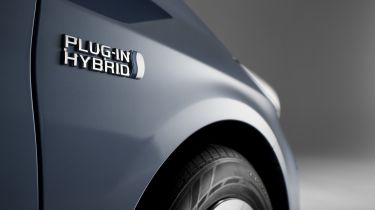What is a hybrid car?
What exactly does it mean when a car is powered by 'hybrid' technology?

What exactly is a ‘hybrid’? The word has become increasingly common in the automotive world over the last 20 years and describes cars that combine the use of a petrol or diesel engine with an electric motor.
Although pure electric vehicles (EVs) have become a regular sight on our roads, they remain relatively expensive and are not within everyone’s budgets. Hybrids exist as an intermediate stage between zero-emissions electric motoring and long-range fossil-fuel power, offering some of the reduced running costs and environmental benefits of electric cars at a lower purchase price.
Best hybrid and plug-in hybrid cars you can buy today
Hybrid technology has developed over the years and there are four different types that work slightly differently from each other. The main thing to consider is that all hybrids aim to reduce the workload of a car’s internal combustion engine and allow for some driving using electric power only. We explain how each different type of hybrid technology works below.
Read on to find out more about the most common types of electrified hybrid power system...
Mild hybrids
Mild-hybrid technology is becoming increasingly common. It's arguably the simplest form of hybrid power and is often added to cars that were originally launched as petrol or diesel models. Mild-hybrid technology is generally employed to improve the potency of a car’s stop-start system, meaning it can cut in sooner to switch the engine off, thereby further reducing engine emissions.
In most cases, it uses a 'starter generator' in place of the petrol or diesel engine's starter motor. This can recover power from engine braking to top up the car's battery.
Depending on the model, a car with mild-hybrid tech is often able to coast with the engine off and come to a stop silently without the engine. However, some systems – such as Mercedes EQ Boost – straddle the line between mild and full-hybrid by allowing travel in pure electric mode for short distances, as well as providing a power boost when accelerating.
Examples of cars with mild-hybrid systems include the Ford Puma SUV and Suzuki Swift hatchback.
Read more detail about mild-hybrid technology here.
Hybrid car
The original 'self-charging hybrid’ car, one that combines a petrol or diesel engine with an electric motor, still exists today. The first Toyota Prius and Honda Insight, launched in the 1990s, are regarded as the pioneers of this technology. A hybrid is powered by a conventional petrol or diesel engine but some engine power is diverted to charge a battery which, in turn, can power a hybrid's electric motor for zero-emissions driving at very low speeds. Toyota, Lexus and Kia have branded this type of hybrid as 'self-charging', mainly to distinguish it from plug-in hybrids.
The advantages of traditional hybrids all but disappear at motorway speeds, where the electric motor and battery are insufficient to propel the car alone. A hybrid comes into its own, though, when maneuvering at parking speeds, or in urban traffic jams where exhaust emissions should be kept to a minimum.
Examples of the hybrid car include the Toyota Prius hatchback and Hyundai Ioniq Hybrid.
Read more detail about self-charging hybrid technology here.
Plug-in hybrids (PHEVs)
A plug-in hybrid electric vehicle (PHEV) builds on the idea of the self-charging technology described above, but offers a bigger, more powerful, externally charged battery pack to support a longer all-electric driving range at higher speeds. Typically requiring connection to a power supply for several hours for a full battery charge, many of the latest PHEV models can manage almost 30 miles of driving before their electric range is used up.
More important than range, though, is that PHEVs can drive far more quickly in all-electric mode than their self-charging counterparts. Some can manage up to 80mph, which makes it possible for an entire short journey to be covered without the petrol or diesel engine cutting in. This enables PHEVs to record impressive official fuel-economy figures, as the technology is well suited to the type of moderately fast, stop-start driving conditions that such figures are calculated under.
Examples of plug-in hybrids include the BMW 330e saloon, Mitsubishi Outlander PHEV SUV and Volvo XC90 T8 Twin Engine.
Read more detail about plug-in hybrid technology here.
Range-extender hybrid
A range-extender hybrid is actually more akin to an electric car than a petrol or diesel one. Range extenders are less common than they were in the early 2010s, when cars like the Vauxhall Ampera and Chevrolet Volt hatchbacks were still on sale. Until 2018, only BMW offered a range-extender in the UK, as an option for the BMW i3 hatchback but now even that car is only available in fully electric form.
This pure-electric model is charged at home or work from a mains cable or specialist charger, but the range-extender option adds a small petrol engine that can charge the battery when the next mains charging point is too far away. Unlike regular hybrids, a range-extender's petrol engine doesn't propel the car on its own.
A current example of a range-extender hybrid is the LEVC TX London taxi.
Read more detail about range-extender hybrid technology here.
Interested in knowing more about electric cars? Read our explainer here.
Most Popular
Tips & advice

Car dashboard warning lights: what does each symbol mean?

Electric car charging stations: public networks, charger types, apps and maps






